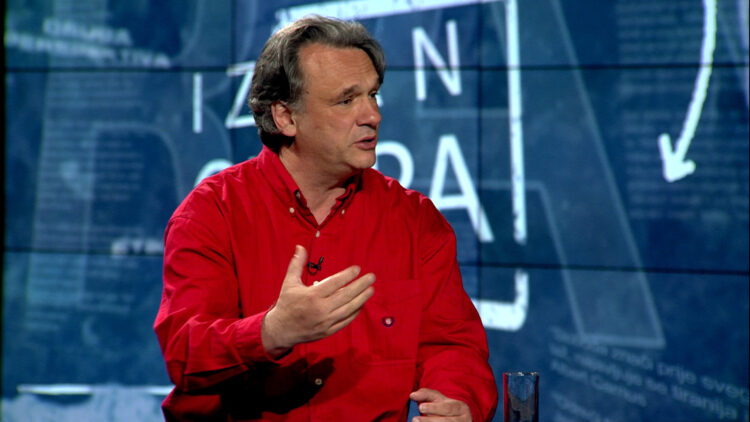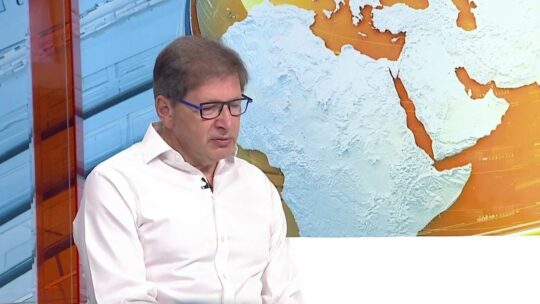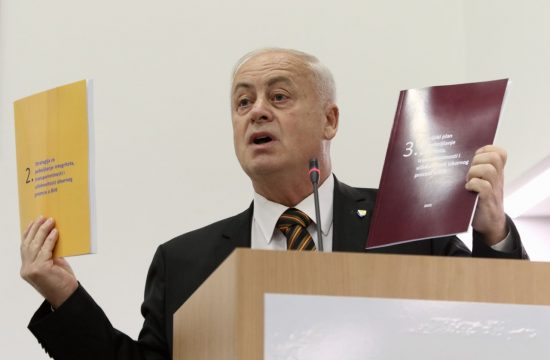
University professor Senadin Musabegovic told N1 that cold-blooded egoism became a fundamental principle in the region since the 1990s, leading to the complete destruction of the idea of human progress. He also noted that the reason for wars in the region was the closeness of cultures, which fostered the notion of creating insurmountable differences among nations.
Professor Musabegovic said he sees no concept for a better and alternative future, given the current focus on technological development, which, according to him, cannot be a substitute for the advancement of humanity.
Musabegovic emphasized the technological dimensions of warfare, pointing out that even World War I was “a general slaughterhouse where many European intellectuals believed in war.”
“They thought society would be regenerated through war. But it was actually the collapse of belief. Cold-blooded killing happened through technology, with a press of a button, technical killing of people—where humans are reduced to numbers. This also occurred later in concentration camps, where the human body was turned into raw material. Industrial progress doesn't necessarily mean moral progress,” Musabegovic said. He added that high technical development has not led to moral or human empathy toward others. Instead, he noted, technical progress sometimes creates conditions for believing that crimes can be part of a mechanical and rational solution.
“Hitler viewed the killing of Jews as a technical, rational, and final solution—that's the monstrosity of modernity,” he told N1.
As a professor of political philosophy, he commented on human attitudes toward killing, highlighting how individuals fear for their careers:
“People accepted and accept the norm of killing, even if it makes them nauseous, often for career reasons, fearing exclusion from their group. Career is the instinct of modern bourgeoisie to achieve success and realize themselves, so if you lose it, it's like losing yourself. That's the model of today's human,” emphasized Musabegovic, a professor at the Department of Art History at the Faculty of Philosophy, University of Sarajevo.
He critically discussed the relationship between nationalism and market logic, noting that all nations in this region have been victims at some point in history:
“Serbs were victims of genocide during World War II, committed by the NDH. We can talk about Croats being victims during communism, especially in Vukovar, and Bosniaks were victims of genocide in the 1990s,” he said.
“The problem arises when nationalists narcissistically start mourning their own victims and consider their nation as chosen and self-sufficient, insensitive to the suffering of others. This emerged with the liberal order. The combination of nationalism and free-market logic actually occurred simultaneously. The free market created egoistic individualism and individual isolation, while nationalism created the myth of collectivism,” Musabegovic said. He added that nationalism pledges allegiance to tradition and family but ends up undermining both.
Musabegovic also observed that the proximity of cultures has been a cause for conflict:
“The reason why war happened is not that cultures are incompatible, but because they are close. Through war, violence is used to separate one culture from another, creating insurmountable differences and isolating everyone into their own ghettos. All those who participated in war, those with a strong messianic cult of their own heroism, try to become businessmen. They seek to own large companies and privatize social ownership. Many of them failed because they were too much on the side of lawlessness, but that's the tendency,” he concluded in his interview with N1.
Senadin Musabegovic studied at the Faculty of Philosophy in Sarajevo. In 1995, he continued his studies at the University of Siena in Italy, where he graduated in political philosophy in 1999. He later completed his doctoral studies in Florence. During his studies, he attended classes at New York University and was a visiting researcher at the London School of Economics. He is a professor at the Faculty of Philosophy in Sarajevo and the author of several books, with his works translated into Polish, Italian, English, French, Swedish, Arabic, Turkish, Hungarian, and Spanish.





Kakvo je tvoje mišljenje o ovome?
Budi prvi koji će ostaviti komentar!